Nuestr@ Equipo
We are a team comprised of faculty and students from UCLA, as well as community researchers.
We are a team comprised of faculty and students from UCLA, as well as community researchers.
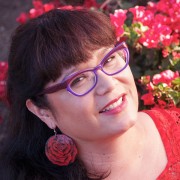
Dr. Maylei Blackwell (Co-PI) has worked with the indigenous social movements in Mexico for over twenty years. For the last ten years, she has conducted community-based and collaborative with migrant indigenous communities from Mexico and Guatemala who live and work in Los Angeles. Her research expertise focuses on the intersection of women’s rights and indigenous rights within Mexico and California as well as the global struggle for indigenous rights. She more recently has documented cultural continuity and political mobilization among Zapotecs and Mixtecs from both the northern sierra as well as the central valleys of Oaxaca as well as the increasingly Mayan diaspora from Guatemala in Los Angeles. In addition, she is a noted oral historian and author of ¡Chicana Power! Contested Histories of Feminism in the Chicano Movement, which was a finalist for the Berkshire Conference of Women Historians Book Prize and named by the Western Historical Association as one of the best book in western women and gender history. Dr. Blackwell has served as an advisor to the Binational Front of Indigenous Organizations.

Dr. Mishuana Goeman (Co-PI), Tonawanda Band of Seneca Nation, is an Associate Professor and Vice Chair of Gender Studies Department at the University of California, Los Angeles. She received her doctorate from Stanford University’s Modern Thought and Literature and was a UC Presidential Post-doctoral fellow at Berkeley. Her book, Mark My Words: Native Women Mapping Our Nations( University of Minnesota Press, 2013) was honored at the American Association for Geographic Perspectives on Women. She has published in peer reviewed journals such as Critical Ethnic Studies, Settler Colonial Studies, American Quarterly, Wicazo Sa, International Journal of Critical Indigenous Studies, American Indian Cultures and Research Journal, Transmotion, and Journal of Anthropological Research. Her previous theoretical work on mapping uses narrative methodologies and Native feminist work that offers material practices to accompany understandings of Native bodies in place, bodies that are complex and mobile. This interdisciplinary process enables her to implement a plan that tackles the complexity of Los Angeles Indigeneity and landscapes.
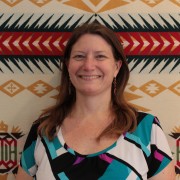
Dr. Wendy Teeter (Co-PI) is Curator of Archaeology for the Fowler Museum at UCLA and on the Register of Professional Archaeologists. As a California archaeologist, she co-directs the Pimu Catalina Island Archaeology Project along with Desiree Martinez (Tongva) and Karimah Kennedy-Richardson, which focuses on the history of Catalina and its relationships with other islands and the mainland. They run a yearly field school that has been awarded scholarships through the Register for Professional Archaeologists and American Anthropology Association as well as the Society for American Archaeology for 2012 and 2013. In June 2011 she co-curated, “Launching A Dream: Reviving Tongva Maritime Traditions,” at Fowler Museum at UCLA with Cindi Alvitre (Director, Ti’at Society). Outside of her professional focus, Dr. Teeter an Officer on the Ocean Charter School Board of Trustees, a Los Angeles County Waldorf-informed charter school.
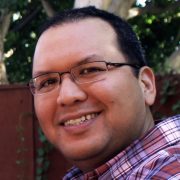
Keith L. Camacho (Chamarro) is an associate professor of Pacific Islander Studies in the Asian American Studies Department, University of California, Los Angeles. He is also the senior editor of *Amerasia Journal* and the author of several works on empire, militarism, and war, such as "Militarized Currents: Toward a Decolonized Future in Asia and the Pacific" and "Cultures of Commemoration: the Politics of War, Memory and History in the Mariana Islands."
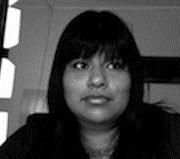
La Dra. Lourdes Alberto es profesora asistente en el Programa de Estudios Étnicos de la Universidad de Utah. Nacida en la ciudad de Los Ángeles, California, actualmente es miembro de la Comunidad Indígena Zapoteca de Oaxaca, México. La profesora Alberto recibió su doctorado en Ingles en Rice University, con especialidad en literatura Chicana/o y Estudios Indígenas. Su interés de investigación transita por la interdisciplina, y particularmente en los movimientos hemisféricos del concepto indígena y cultura indígena en las Américas. Actualmente trabaja en el proyecto de su libro: “Mexican American Indigenisms: Transnationalism and Indigeneity in Chicana/o and Oaxacan Literature and Culture”, donde ofrece un estudio comparativo de la literatura Chicana/o y Oaxaqueña, así como de la cultura, la figura de “el Indio” y los discursos de indigenismo que han sido indispensable para la construcción de identidades étnicas, culturales y políticas de la comunidad Latina en los Estados Unidos. Recientemente, contribuyó con un capítulo titulado: “Topographies of Indigeneity,” en la antología Comparative Indigeneities of the Américas: Toward a Hemispheric Approach, el cual fue editado por Arturo Aldama, Bianet Castellanos y Lourdes Gutiérrez-Nájera, y publicado por University of Arizona Press.
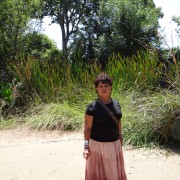
Ms. Behrns is a tribal elder and activists, who since the early 1990’s has been fighting to preserve Kuruvungna Springs, located on University High school and leased to them by LAUSD. “The Gabrielino/Tongva or "people of the earth" occupy present day Los Angeles Basin and parts of Orange County in a complex network of villages. One village, Kuruvungna (A Place Where We Are In The Sun), is located near springs that still run today from the Santa Monica Mountains” (Source: The Gabrielino/Tongva Springs Foundation Archives, Application Materials for the Governor‘s Historic Preservation Award/Tongva Springs Foundation Archives, Application Materials for the Governor’s Historic Preservation Award). She also published a monthly newsletter for many years that not only addressed Tongva issues but presented a crosscurrent of Indigenous issues in the area. She was also appointed to the Los Angeles City County Native American Indian Commission. For Ms. Behrns keeping the memory and rich cultural history of the springs alive has been a labor of commitment to clean-up and maintain a site, once decimated through neglect
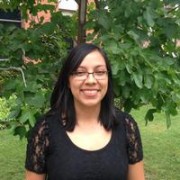
Floridalma Boj-Lopez es candidata a Doctora por la Facultad de Estudios Americanos y Etnicidad. Floridalma se identifica como generación 1.5 Maya-Kiche y fue criada en Los Ángeles, California. Usa la historia de su familia y su experiencia de vida como guía en su proyecto de investigación. Su investigación examina las formas de mantener la cultura en migrantes Guatemaltecos Mayas y la segunda generación Maya en Los Ángeles, especialmente la relación entre visión y vivencia justa, decolonial y políticas indígenas. Se graduó de la Universidad de California, Santa Cruz y es maestra por Universidad del Estado de California, Northridge.

Annakai Hayakawa Geshlider is a second-year undergraduate at the University of California, Los Angeles. She studies in the department of World Arts & Cultures/Dance. She is also interested in American Indian Studies, Creative Writing, Gender Studies, Asian American Studies, Society & Genetics, Filmmaking, and Art. Annakai was born in San Francisco and currently lives in Westwood.

Kat High is a member of the Hupa nation from California who has documented over 30 years of Indigenous activism in Los Angeles. She sits on numerous boards and does Native outreach for LAUSD and beyond. Forthcoming will be an archive that documents Indigenous LA at the crossroads. We are very fortunate to have her join our project.
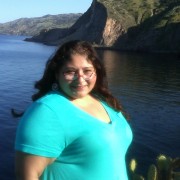
Desiree Renee Martinez is Gabrieliño (Tongva) and an archaeologist working for Cogstone Resource Management. Desiree received her BA in Anthropology from the University of Pennsylvania and her MA in Anthropology from Harvard University. Desiree is a co-Director of the Pimu Catalina Island Archaeological Field School a native-centered course that melds archaeology with traditional knowledge in collaboration with Gabrieliño (Tongva) community members. In January 2011, Desiree, with other community members and archaeologists, was instrumental in bringing to light the secret removal of burials from the Campo Santo, a historic Catholic cemetery in Downtown Los Angeles which holds the remains of early Los Angelenos, including the ancestors of the Gabrieliño, Luiseno, Cahuilla, Juaneno, and Paiute people. Desiree’s life has been dedicated to obtaining the skills and knowledge necessary to combat the wanton destruction of Native American sacred and cultural sites. Desiree’s dream is to open up a Gabrieliño (Tongva) museum and cultural center to remind the southern California community of the Gabrieliño’s vibrant heritage and continuing contribution to the southern California region.
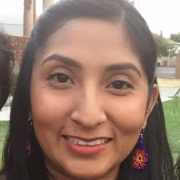
Janet Martínez es la Directora de Operaciones de Crédito Emprendedor (CREE), una institución de microcréditos que presta servicios a las comunidades de migrantes que no tienen acceso a instituciones financieras. Obtuvo su licenciatura en Estudios de la Mujer y género en la Universidad de California, Berkeley con la tesis sobre migrantes indígenas en el sistema judicial de Estados Unidos. Trabajó para el centro binacional para el desarrollo indígena oaxaqueño recaudando fondos para la organización. Ha sido consultora para varias organizaciones de base. Janet ha sido un miembro clave para la organización del mes de la herencia oaxacaqueña. Además de su activismo directo, Aparte de su enfoque como activista directa, Janet se ha dedicado a atender los problemas que enfrentan las comunidades migrantes indígenas a través de diversos escritos sobre temas que incluyen: nuevos enfoques de liderazgo de género en las comunidades indígenas, y los desafíos que enfrentan los jóvenes en las comunidades de migrantes indígena incluyend: “Las Cuerudas” Desinformémonos, http://desinformemonos.org/2011/10/cuerudas/ (2011); “Cuerudas” Nueva época numero 9 ano 3 Las (2011)’ “De Zoogocho a Los Ángeles: segunda Parte” El tequio: Nueva Época numero 1 (October 2009); “De Zoogocho a Los Ángeles: segunda Parte” Primero parte El tequio: Nueva Época numero 5 ano 1 (July 2009); “La pobreza exige” In Historia de Migrantes- Estados Unidos Primer Concurso Primera edición: November 2006.
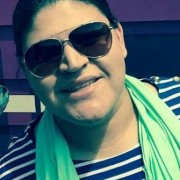
Damien Montaño de maestría en el Programa de Estudios Nativo Americanos en la Universidad de California, Los Angeles (UCLA). Obtuvo su licenciatura en Estudios Étnicos, específicamente en Estudios Chicanos y Chicanas en la Universidad del Estado de California, Fullerton. Su trabajo se enfoca en una variedad de temas como masculinidad indígena, espiritualidad indígena, y expresiones artísticas. Damien también estudia el arte de las joyas indígenas y también pinta en óleo y acrílico. Su trabajo en UCLA se enfoca principalmente en la importancia de taller de joyería y su simbolismo dentro de géneros y sexualidad en las cosmovisiones indígenas, así como la espiritualidad y religión en la identidad de Dos Espíritus (en inglés, Two-Spirit). Actualmente, su investigación se concentra en el estudio de la teoría de Dos Espíritus, arraigado en las artes, la artesanía, y las joyas de la guerrilla. Hace hincapié en la joyería como una expresión cultural y como marcadores de identidad, mientras se conecta a la tierra como un pariente vivo (y no como un recurso para ser explotado). Su contribución a este proyecto consiste en la cartografía del Pow Wow y reuniones de estas ceremonias en todo los espacios de Los Ángeles.

Timothy is a member of the Tataviam Band of Mission Indians tribe, born and raised in the San Fernando Valley of California. Timothy completed the recording arts program in 2013 graduating with honors from the Los Angeles Film School where he received his Associates of Science degree along with a Protools Certification.
Timothy works as a freelancer in production audio on various productions both within and out of the American Indian community. He is skilled in production audio, post production, film editing and social media management.
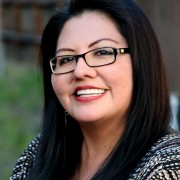
Pamela J. Peters (Navajo) is an Indigenous multimedia documentarian and film consultant living in Los Angeles, California. She was born and raised on the Navajo Reservation. She has produced five award winning films for the Southern California Indian Center’s InterTribal Entertainment multimedia program, co-created film workshops for Native youth, produced PSA’s for Fox Studio’s American Indian Summer Institute program, and co-hosted a monthly film series of Indigenous films. Her own work pushes viewers to critically analyze the psychological and historical structures of Native Americans in film and mass media. Pamela has a BA in American Indian Studies from UCLA.
Current Projects can be seen at www.exiledndnz.com and www.tachiiniiphotography.com
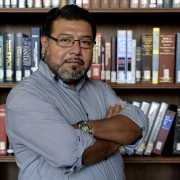
El Dr. Gaspar Rivera-Salgado recibió su doctorado en sociología de la Universidad de California, Santa Cruz. Actualmente es Director del Proyecto en UCLA para Investigación Sociales y Educación donde enseña clases de Trabajo, Labor, y Justicia Social en los Estados Unidos y temas de inmigración. También dirige el Instituto para Cambio Social Transnacional. Previamente, ha tenido cargos en varias universidades en los Estados Unidos y fue nombrado del 2004-2005, Prince Claus Chair en Desarrollo y Derechos Humanos en la Universidad de Utrecht, en Netherlands. Actualmente es asesor en varias organizaciones inmigrantes en California y México, incluyendo el Centro Binacional Para el Desarrollo Indígena Oaxaqueño en Fresno, el Frente Indígena de Organizaciones Binacionales y el Desarrollo Binacional Integral Indígena A.C. en Oaxaca. El Dr. Rivera tiene experiencia extensiva como consultante independiente en temas de migración transnacional, relaciones raciales y étnicas y entrenamiento de diversidad para organizaciones. Fue elegido por el Alcalde Eric Garcetti en el 2014 como Vice-Presidente de la Comisión de Relaciones Humanas para la Ciudad de Los Ángeles. Algunas de sus publicaciones son: (con J. Fox) Indigenous Mexican Migration in the United States (University of California, San Diego, 2005); y recientemente publicado el volumen (con E. Telles, y M. Sawyer) Just Neighbors?: Research on African American and Latino Relations in the United States (Russell Sage Foundation Press, 2011).
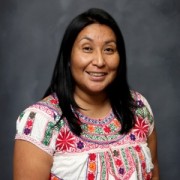
Odilia Romero Hernández es indígena Zapoteca de la comunidad de San Bartolome Zoogocho en las montañas del norte del Estado de Oaxaca en México. En los 70s, acompañada de sus padres y paisanos de su pueblo migró a Los Ángeles y se ubicó en el distrito de Pico-Union. Ella es miembra del Frente Indígena de Organizaciones Binacionales/Indigenous Front of Binational Organizations (FIOB) con sede en la ciudad Los Ángeles, California. Sirvió seis años (dos términos) como Coordinadora Binacional de la Mujer en el FIOB y por más de una década ha trabajado con indígenas mexicanos y organizaciones binacionales el tema de los derechos humanos, la cultura, y la educación política. Dentro de sus publicaciones destaca: “genero, generación y equidad. Los retos del liderazgo indígena binacional entre México y Estados Unidos en la experiencia del Frente Indígena de Organizaciones Binacionales (FIOB), en coautoría con Maylei Blackwell y Laura Velasco Ortiz , Rufino Domínguez Santos y Centolia Maldonado Vásquez. Así como “indígenas migrantes y sus barrera de idioma en los estados unidos” publicado Diálogo, Center for Latino Research, DePaul University Escritos sobre ella Mujer rebelde: testimonio de Odilia Romero Hernández, en prensa.
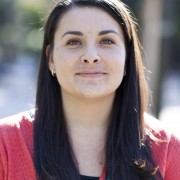
Theresa Jean Stewart (San Luis Rey Band of Mission Indians/Gabrielino/Tohono O’odham) is a third year doctoral student in Higher Education and Organizational Change at the UCLA Graduate School of Education and Information Studies. She previously received a BA in American Indian Studies and MEd in Student of Affairs from UCLA. Theresa’s doctoral research focuses on the impact of in-college experiences on the retention and completion of American Indian students from postsecondary institutions, with a focus on students from Southern California tribal communities. Her contribution to the project was assisting with the story map on American Indian education history and resources.

Craig is descended from the indigenous communities of the Yaavetam (Los Angeles) and Komiikravetam (Santa Monica Canyon) that existed in the Los Angeles Basin. The descendants are more commonly known today, collectively as the Tongva or Gabrielino Indians of San Gabriel Mission. He is also descended from three of the founding families of Los Angeles pueblo in 1781.
Craig is a member of Traditional Council of Pimu (one of several Tongva communities in the Los Angeles Basin) and involved with Ti’at Society, an organization focused on the revival of the traditional maritime culture of the Southern California coastal region and Southern Channel Islands. In the early 1990s, the community built the first traditional plank canoe, called a ti’at , that had disappeared for many decades.
Craig has been active all of his adult life engaged as a Tongva cultural educator, presenter and consultant to many schools, culture and nature centers, museums as well as city, state and government agencies acting as a consultant on Tongva history, culture and contemporary issues.
He continues to work as a freelance cultural educator and works as an ongoing consultant at Rancho Los Alamitos Historic Ranch and Gardens in Long Beach, working with the Tongva program that he helped develop. The program caters to 3rd and 4th graders and educates and informs the children about the Tongva, and their survival off the land through food, clothing and shelter. He has also been involved with the organization “Sharing Our Heritage” and Chia Café, which provide cooking demos and classes with California native plants. These activities also provide education on the importance of preserving native plants, habitats and landscapes for future generations. He is also an advocate of “indigenizing” public and residential landscapes to California native plants and raising the public’s awareness of drought and water issues.
As an artist, he derives his inspiration from his Tongva cultural heritage. He works in digital media as a graphic designer, mixed media as well as utilized some of his designs as inspiration for community collaborative “sacred art” installations. His artwork continues to evolve and evoke, combining traditional art forms such as painting and drawing with the current technology of digital media with inspiration coming from his life experience as well as his cultural and historical background.
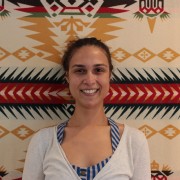
Chantal Walker recientemente se graduó del programa de Maestría en la Facultad de Estudios Indio-Americanos de la Universidad de California, Los Ángeles. Se graduó en Historia por la Universidad Estatal, Dominguez Hills con altos honores. Ha trabajado como asistente de investigación en Dominguez Rancho Adobe Museum in Rancho Dominguez, California. Durante su tiempo en UCLA además de ser estudiante de posgrado fue asistente de investigación, donde produjo el trabajo de tesis “Piyahu Nadu- Land of Flowing Waters- The Water Transfer from Owens Valley to Los Angeles 1913-1939”. Ha presentado en varios congresos y seminarios sus trabajos sobre temas de agua y aspectos de creencias indígenas mundiales. Su última presentación fue en la 13th Annual NOIS Indigenous Scholars Symposium en la Universidad de Washington. Actualmente dedica su tiempo en los servicios humanos y contribuye en cursos sobre el agua para este proyecto de cartografía Indígena en Los Ángeles de UCLA.

My name is Lucia Zezza and I’m currently an undergraduate student studying fine arts at the UCLA School of Arts and Architecture. I work as a Visitor Experience Representative (VER) at the Hammer Museum where I have become more familiar with museum organization and curation. Beyond that, it has been a great space to engage with all kinds of people about art, specifically the art on exhibition, and ideas in general. Before my work as a VER, my time at the Hammer was spent inside the Hammer Museum Student Association events committee.
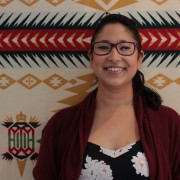
Allison Fischer-Olson, M.A., was born and raised in Los Angeles. She is a 2014 graduate of the American Indian Studies Interdisciplinary Program at UCLA. She also received her B.A. in Anthropology from UCLA in 2010, during which time she concentrated on archaeology and American Indian Studies. Allison’s current work, including her thesis work, revolves around community centered collaboration in museum and archival spaces, as well as more broadly in cultural heritage. Allison currently works for Wendy Teeter at the Fowler Museum at UCLA in the archaeology department, specifically on repatriation issues, collections research, and general curation support. She also works for Rainbow Bridge Monument Valley Expedition Onward!, a non-profit organization working to create a large scale, multi-institutional exhibition in both digital and museum spaces about an archaeological expedition that took place in the 1930’s.
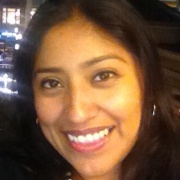
Brenda Nicolás es Zapoteca, oriunda de la comunidad de San Jerónimo Zoochina y Yatzachi el Alto en la Sierra Juárez de Oaxaca, México. Brenda nació y fue criada en la zona de Mid-City en la ciudad de Los Ángeles, California. De niña sus padres le cultivaron la importancia de participación comunal y la vida con Zoochina. Brenda ha participado en bailables regionales de Oaxaca, incluyendo la Guelaguetza de Los Ángeles, y en ceremonias en su pueblo con sus paisanos. Ella es miembra del comité de migrantes de Zoochina en L.A. y es miembra del Frente Indígena de Organizaciones Binacionales (FIOB). Después de transferirse del Colegio Comunitario de Santa Monica realizó sus estudios en la Universidad de California, Riverside. Posteriormente obtuvo su M.A (maestría) en la Universidad de California, San Diego, donde su trabajo de tesis se enfocó en la participación comunitaria y política de jóvenes Zapotecos y como estas formas de participación influye la formación de identidad en Los Ángeles y la Ciudad de Oaxaca. Actualmente, como estudiante de doctorado en la Facultad de Estudios Chicana/o de la Universidad de California, Los Ángele, sigue desarrollando su trabajo sobre la formación de identidad Zapoteca/o en los Estados Unidos entre los jóvenes.
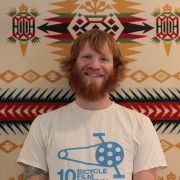
Dean Olson is a undergraduate senior pursuing a BA in Geography at UCLA, with a minor in Geographic Information Systems (GIS). While his concentration is in political geography, he is also interested in urban studies, city planning and cartography. After completing his undergraduate degree in 2016, he intends to go into a graduate program in either Geography, International Relations or Public Policy. He is an active member of the UCLA Model United Nations. Dean formerly served in the US Navy onboard USS Makin Island in San Diego, CA. His work was primarily in current geopolitics and photographic interpretation, and his professional experience in the Navy eventually led him to his academic interest in political geography and GIS. While deployed, he had the opportunity to travel to cities in South America, South East Asia and the Middle East. He hopes to one day work for the United Nations or a transnational NGO, and would eventually like to teach at a university.
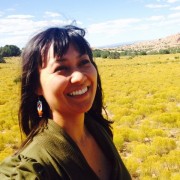
Elizabeth Starks (MS, Software Systems Design), Zuni Pueblo and Diné, is a Research Scientist at University of Washington Bothell School of Education and an independent cultural technologist specializing in mobile and web application development and exhibit design. Starks works with Native communities and cultural institutions to use technology as a tool for self-representation and empowerment. She has partnered with tribal museums and heritage centers, science and cultural museums, and universities on mobile application development, website development, and print design.